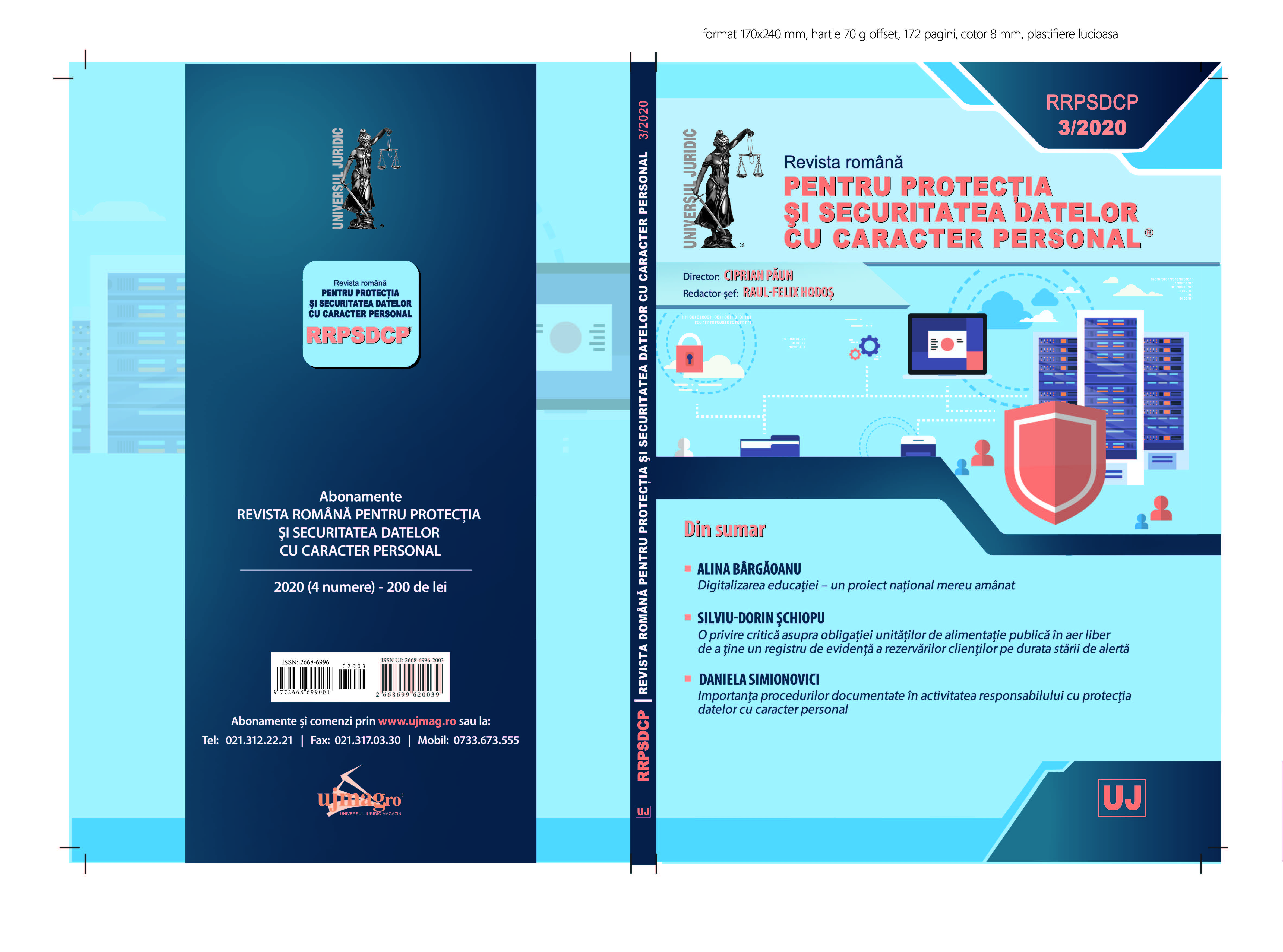Evaluarea gradului de conformare GDPR a campaniilor electorale din mediul online românesc
The evaluation of the GDPR compliance for the election campaigns in the Romanian online environment
Author(s): Marius Dumitrescu, Daniela SimionoviciSubject(s): Law, Constitution, Jurisprudence, Civil Law
Published by: Universul Juridic
Keywords: GDPR principles; compliance; information note; legal basis; cookies;
Summary/Abstract: The election campaign for the local elections is in full swing and, due to the special context created by the CODIV 19 pandemic, as well as the restrictions imposed by the legislation for conducting the election campaign safely for participants, they also did most of the campaign specific activities. to move to the online environment or to place much more emphasis on promoting candidates in the online environment, taking into account the fact that it is no longer possible to organize meetings with voters in which a large number of people can participate. This study, conducted on 25% of candidates for mayor position of the 20 largest municipalities in Romania, highlights the superficiality of operators who process personal data during the election campaign. The lack of attention to the provisions and principles of GDPR is easily noticed because the information of the data subjects is made in a hurry, according to „templates” and often the language used in their preparation is inadequate, full of generalities and in many cases is not adapted to data subjects. It is surprising that after so long there is still confusion between the legal basis for processing (legal obligation vs. legitimate interest vs. consent), and it was not understood that the basis of consent is the only one that cannot be associated with other legal basis for the same purpose and in most cases it is obtained in a vitiated manner. The operators do not respect the structure of art. 13 or 14 and there is confusion between the processing of data collected directly from the data subject or from other sources. From a technical point of view, operators have not adapted their tools used in election campaigns (website, social networking page) to comply with the principles of this regulation, identifying the lack of security certificates (https), storage outside the EU or the use of e mail or newsletter that involves storage outside the EU and last but not least, excessive use of cookies that cannot be controlled by visitors. There are still many aspects to be developed for these online companies to be carried out in accordance with the principles and provisions of EU Regulation 2016/679 and we hope that the next election campaigns will be built, from the moment of conception, on these pillars and the principles or rights of data subjects will not only be respected formally and declaratively.
Journal: Revista română pentru protecţia şi securitatea datelor cu caracter personal
- Issue Year: 2020
- Issue No: 03
- Page Range: 61-78
- Page Count: 18
- Language: Romanian
- Content File-PDF

